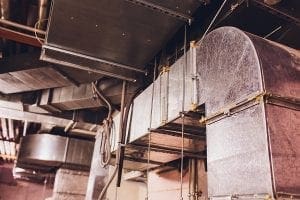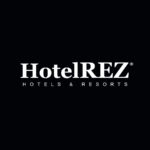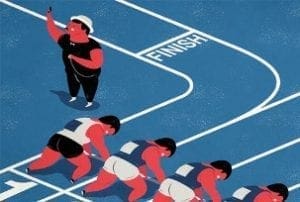 Hotel asset value is determined using multiple calculations, math problems, and sometimes magic tricks, but there are three critically important aspects of the physical plant that can make or break a hotel investment. As an owner or asset manager, keep these three areas on your property checklist, and follow up with a hotel engineering team regularly. Ignore these at your peril!
Hotel asset value is determined using multiple calculations, math problems, and sometimes magic tricks, but there are three critically important aspects of the physical plant that can make or break a hotel investment. As an owner or asset manager, keep these three areas on your property checklist, and follow up with a hotel engineering team regularly. Ignore these at your peril!
Heating, Ventilation, and Air Conditioning (HVAC)
One of the leading causes of guest dissatisfaction, bad reviews, and guest refunds is guest room HVAC issues, but the anatomy of a hotel’s ventilation system is far more complex than most hoteliers understand. Whether the asset utilizes a chiller system for public spaces and guest rooms, or split units and PTACs, there are multiple components involved in maintaining quality air throughout the hotel. Here’s what to look out for:
1. Look at the entire HVAC system
The public space, corridor, and guest room HVAC units all have to be operational, set to the proper temperature for the season, and properly maintained. A mechanical engineer calculates proper air flow using every HVAC component throughout the hotel, so if any part of that system is not operational, multiple issues can occur.
2. Ensure proper ventilation
In particular, pay attention to the guest room and public space bathroom exhaust vents and guest room entry door threshold space. Make sure the exterior intake dampers are in the open position.
3. Verify the square footage being cooled
The square footage of the space being heated/cooled needs to be measured and confirmed whenever a unit is in need of repair or replacement. This is especially important in guest rooms because PTACs are typically replaced more often than public space HVAC units. A “standard” guest room of 300 square feet with an eight-foot ceiling will require an 8,000 BTU PTAC.
4. Conduct regular airflow quality inspections
This should be part of preventative maintenance. Rather than cooling the air, HVAC systems are designed to remove heat and moisture, leaving behind cooler air in the space. If the guest room PTAC unit is too large, the thermostat will reach the desired temperature before the moisture is removed. As a result, the unit will shut off without removing the moisture from the air. The moisture will stay in the room and penetrate the walls, carpet, and furniture.
Mold and water intrusion
There is a four-letter word that no hotel owner wants to hear at their hotel, and that word is MOLD. All hotels can have some sort of “environmental growth,” whether it’s in the corner of a bathroom, shower, pool, or kitchen, but the nasty stuff, “toxic black mold” or Stachybotrys Chartarum, can be hazardous to humans.
The most common health issues are respiratory and involve coughing, sneezing, eye irritation, and even lung problems including bleeding. The cost of remediation, depending on the area effected, can range between $500 to $10,000+, and that doesn’t include lost revenues from having a guest room or space out of order. Musty hotel rooms with or without visible mold are another major area of guest dissatisfaction.
How does black mold appear and cause this much damage? It usually comes from water intrusion from outside or from leaking plumbing inside the walls. The other cause can be from poorly maintained or improperly sized HVAC equipment.
Water intrusion may start from a roof leak, commonly noticed by staining on the ceiling of the upper most floor. However, water will always find the path of least resistance and may find its way down a chase to lower floors or can pool and follow a path across a ceiling to the lowest point. Other sources of water intrusion include windows (seals and caulking), the exterior insulation and finish system (EIFS), loose or broken brickwork, balconies and flashing.
How can you prevent mold and water intrusion in your hotel?
- Inspect all interior spaces as part of a documented daily walkthrough.
- Conduct weekly exterior visual inspections of every part of the building exposed to the elements, including:
- Roof
- EIFS
- Brick
- Concrete
- Windows
- Doors
- Balconies
- For taller buildings or spaces that can’t be reached with a ladder, a pair of binoculars will help.
Life safety
The brands take life safety issues as a serious offense and so should every hotel owner. Often times, a brand will have stricter rules than the local jurisdiction codes require, with additional life safety devices being required throughout the hotel to meet brand standards.
For example, in the city of Cleveland, local code states that if the main spaces are protected by sprinklers, then smoke detectors and carbon monoxide detectors are not required. However, Intercontinental Hotels Group (IHG) overrode the local jurisdiction and required the owners to install smoke and carbon monoxide detectors throughout their main spaces. They also required the property to install emergency ventilation in the stairwells. The brands are well-aware of how important life safety is, and they typically go above and beyond local guidelines.
Most brands, cities, states and management companies require their hotels to have fire alarm, sprinkler, ANSUL & fire extinguishers inspections annually at the minimum. All deficiencies need to be addressed and repaired as soon as possible.
Building and fire Inspections
For new builds and renovations, the Building and Fire Inspectors will review life safety items throughout the building, including but not limited to:
- Guest Room doors close and self-latch at a 45-degree angle
- Smoke seals are installed
- Doors are fire-rated
- Windows do not open more than a few inches
- Sprinkler escutcheons are installed at all sprinkler heads
- Smoke detectors are properly installed in every guest room
- Stairwell doors close and latch
- Emergency lights & exit lights are all operational with battery back-up
- Wall intrusions have been properly fire-stopped
- Stairwells are free of debris
- Electrical panels are not blocked
- Fire extinguishers are installed and inspected
- ANSUL systems (if installed) have been inspected
- Fire pump has been tested and is operational
- Alarm/sprinkler panel is clear of all alarms
If any of the above items do not pass inspection, the hotel may not receive their Certificate of Occupancy and may not be allowed to (re)open. Building and Fire Inspections also occur annually and the Operations team should always be ready for the inspections. Nothing is as important as the safety of employees and guests.















